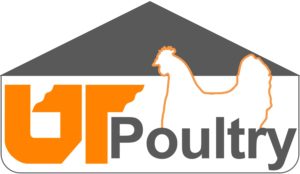With the passage of the first major cold front of the fall season, expect the avian influenza threat to increase across Tennessee. As of October 31st, 14 states had reported a total of 41 confirmed cases in the month of October alone after only four cases were reported across the entire U.S. during July-September. The recent weather change will likely intensify the fall migration of waterfowl southward to avoid the colder temperatures. This means commercial poultry growers and backyard flock owners should redouble their biosecurity efforts in order to keep their flocks safe from avian influenza which is being carried by migrating waterfowl.
The current H5N1 strain of avian influenza, which has troubled commercial poultry producers and backyard flock keepers since 2021, has resulted in the loss of over 60 million birds and drove eggs prices up to record levels last fall and winter. Commercial poultry producers understand biosecurity better than many small, hobby or backyard flock owners do but everyone must be on high alert for the increased avian influenza threat as the fall migration increases. Because small flocks tend to be outdoors, there’s a greater risk of exposure to infected wild birds. However, commercial flocks raised indoors are also at risk of avian influenza being unknowingly tracked into the chicken house.
You can track the fall migration yourself at the website below:
https://birdcast.info/migration-tools/live-migration-maps/

The above image shows 222 million birds in flight, all headed south, at midnight on November 1st. Biosecurity is our best proactive preventative measure against avian influenza. Please be mindful of biosecurity practices and take precautions to keep your flock safe. Biosecurity is based on three critical components:
- Isolation
- Traffic control
- Sanitation
Keep these in mind as you go about your daily routine. Remember that avian influenza must be put in the chicken house, it does not appear by magic. Unknowingly tracking the virus into the house is a strong possibility and must be guarded against. Dedicate footwear that is only used in the chicken house or use disposable footwear in the chicken house or pen.
Know the warning signs of disease in birds (listed below) and watch for these in your flock. If you are a commercial poultry producer, notify your field technician at the first indication of a disease issue. If you are a backyard flock keeper, notify your county agent, local veterinarian, Kord Diagnostic Lab in Nashville (615-837-5125), Tennessee State Veterinarian’s office (615-837-5120), or a poultry Extension specialist at Tennessee State University (615-963-5823) or The University of Tennessee (931-486-2129). Possible disease signs include:
- Sneezing
- Coughing
- Swollen sinuses
- Nasal discharge
- Watery eyes
- Twisted neck
- Decreased feed and water intake
- Dehydration
- Decreased egg production
- Misshapen eggs
- Decreased fertility and hatchability
- Depression
- Huddling
- Lethargy
- Increased mortality
Remain vigilant and immediately report any change in the health status of your flock. Backyard flock keepers should keep birds in pens that are covered with roofs or tarps to prevent exposure to wild bird feces as the avian influenza virus is in the manure of wild waterfowl and keep poultry away from any pond or other water source that wild waterfowl may visit. Backyard flock owners should quarantine and isolate any new or sick birds from your other birds for a minimum of three weeks, 30 days is even better. Do not allow unnecessary visitors near your birds and keep a record of all necessary visitors. If you visit an area where there are waterfowl or other poultry, do not visit your birds until you change shoes/clothes and wash your hands.
